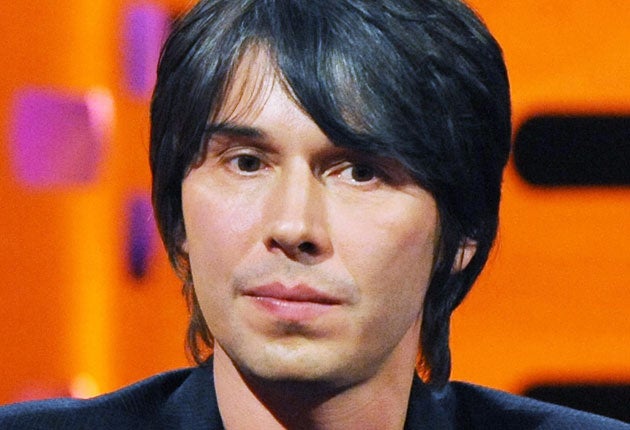Critics of the BBC have the 'British disease', says Brian Cox

Your support helps us to tell the story
From reproductive rights to climate change to Big Tech, The Independent is on the ground when the story is developing. Whether it's investigating the financials of Elon Musk's pro-Trump PAC or producing our latest documentary, 'The A Word', which shines a light on the American women fighting for reproductive rights, we know how important it is to parse out the facts from the messaging.
At such a critical moment in US history, we need reporters on the ground. Your donation allows us to keep sending journalists to speak to both sides of the story.
The Independent is trusted by Americans across the entire political spectrum. And unlike many other quality news outlets, we choose not to lock Americans out of our reporting and analysis with paywalls. We believe quality journalism should be available to everyone, paid for by those who can afford it.
Your support makes all the difference.Scientist turned broadcaster Professor Brian Cox yesterday accused critics of the BBC of having "the British disease".
Professor Cox, who appeared in the BBC's highly praised Wonders of the Universe and Wonders of the Solar System series, defended the corporation during a Q&A session at Edinburgh's International Television Festival.
"One of the things that surprises me about the debate about the BBC is, here is an institution that is clearly a big global brand, a powerful global brand, recognised as the best in the world in many areas. And what the British disease is, is to even consider damaging that institution."
Two years ago, James Murdoch made the keynote MacTaggart lecture at the festival, describing the BBC's size and ambitions as "chilling" and accusing it of mounting a "land grab" in a beleaguered media market.
Professor Cox explained how the success of his BBC science programmes had brought him public recognition and changed his life. "That is what my life is now – explaining thermodynamics to people in pubs, – not drinking, which is what it used to be."
Despite defending the Beeb, he said he would love to work for ITV. "I'd love ITV to do more science programming. You can get prime-time-level audiences with science programmes."
The success of Cox's Wonders programmes is credited in part with the rise of numbers of students studying physics and astronomy. He stressed the importance of the sciences to Britain, pointing out that "6.7 per cent of UK GDP comes from science. That's more than the finance sector!"
Echoing Google boss Eric Schmidt's criticism of the neglect of science and engineering in Britain, Professor Cox said: "Science has to be centre-stage in our culture. It can't be marginalised. The BBC can do it, and, hopefully, other broadcasters."
Join our commenting forum
Join thought-provoking conversations, follow other Independent readers and see their replies
Comments